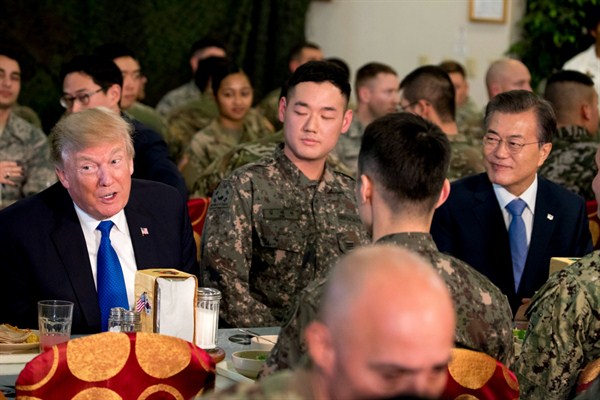It is a bedrock for both countries, so why does the 65-year-old security alliance between South Korea and the United States look shakier today than it has been at any time since its inception? Codified in a 1953 treaty after the armistice that froze the Korean War, the alliance helped South Korea preserve its independence and transform itself from one of the world’s most underdeveloped nations to an economic powerhouse and robust democracy, while signaling America’s determination to contain communism.
But today, amid an unexpected diplomatic thaw between North and South Korea and with an American president dismissive of alliances, the picture is much different. Seoul is looking to expand its economic ties with China as it embarks on talks with North Korea after steady provocations from Pyongyang. Both of these are potential game changers. Even if diplomacy doesn’t pan out, South Korea has reached the point militarily where it could defeat another North Korean invasion on its own. Should there be a second war on the Korean Peninsula, Seoul would certainly appreciate large-scale U.S. military involvement, but it would not depend on it. South Korea is freer to walk away from its alliance with the United States than it has been since the onset of the Korean War in 1950.
Still, this is not the first rough patch for the alliance. During the Nixon and Carter administrations, Seoul feared abandonment as the United States recalibrated its role in the Pacific after the Vietnam War. But the current turmoil somehow feels different. With President Donald Trump more concerned about the direct threat to the United States from North Korean nuclear weapons and ballistic missiles than about helping defend South Korea, some South Koreans are beginning to believe that the risks of the alliance outweigh the benefits. Trump’s periodic threats of military strikes against North Korea, which likely will return once it becomes clear that North Korea in fact has no intention of giving up its nuclear weapons, heighten this concern.

